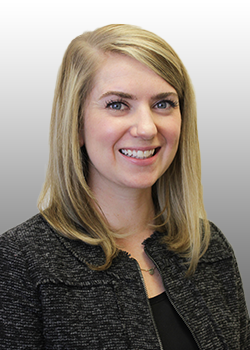Dr. McCullar is a board-certified family medicine specialist at Premier Independent Physicians of Rockwall in Rockwall, TX. She sees individuals aged 12 years and up and is accepting new patients!
1) Get A Mammogram Check-up
Women under the age of 40 can perform breast self-exams in order to familiarize themselves so that they may recognize any changes that could occur. I also recommend that women of all ages have an annual physical at which time their primary care provider can perform a breast exam.
With that being said, there are many women who wonder if there is an age when they may no longer need to be screened for breast cancer. Based on the fact that women over the age of 75 have not been
Women under the age of 40 can perform breast self-exams in order to familiarize themselves so that they may recognize any changes that could occur. I also recommend that women of all ages have an annual physical at which time their primary care provider can perform a breast exam.
With that being said, there are many women who wonder if there is an age when they may no longer need to be screened for breast cancer. Based on the fact that women over the age of 75 have not been included in studies of mammography, it is generally acceptable for women over this age to stop being screened. There is not enough evidence to indicate that women over the age of 75 will continue to benefit from routine mammography. However, I prefer to individualize this decision with my patients. If I have a very healthy 75-year-old with more than 10 years of life expectancy, it may be worthwhile to continue mammograms after the age of 75.

Emily McCullar, MD
Board-Certified, Family Medicine
2) Stay Active. Stay Fit. Stay Healthy.
Regular physical activity and a healthy diet are key when it comes to attaining and maintaining a healthy weight. The World Health Organization recommends that each person gets at least 150 minutes of exercise weekly. This can be broken down, as suitable for an individual’s schedule, (ex: 50 minutes 3 times weekly, or 30 minutes 5 times weekly). If someone is seeking to lose weight, the recommended amount of exercise increases to 300 minutes. This may seem like a daunting task at first, but it can be achieved if gradual progress is maintained. I would encourage all readers to have regular checkups with their physician in order to discuss preventive medicine and allow your physician the time to individualize a plan for decreasing your risk of preventable diseases.
3) Meet Your Vitamin Needs

A healthy bone mass can be credited to good nutrition and meeting the body’s vitamin needs. Particular attention should be paid to an adequate daily intake of calcium and Vitamin D beginning in childhood and continuing throughout our life span. Generally, it is recommended that adults get approximately 1200 mg of calcium daily. Calcium is optimally absorbed when found in dietary sources, and some foods other than dairy have a surprising amount of calcium. Collard greens, for example, have over 200 mg of calcium per cup. For those that struggle to include 1200 mg daily of calcium in the diet, supplemental calcium has shown some benefit.
4) Prioritize Your Mental Health
Other symptoms are a little more nuanced, like decreased interest or enjoyment in previously enjoyed hobbies or activities and difficulty concentrating. Symptoms that can be related to both depression and other mental illness diagnoses include trouble with sleep, feeling tired with little energy, and changes in appetite. This, of course, is not an exhaustive list of symptoms of depression and again, will vary from person-to-person, but if anyone (male or female) finds that they are experiencing some of these symptoms with some regularity, it might be a good idea to visit their primary care physician.


Recent Comments